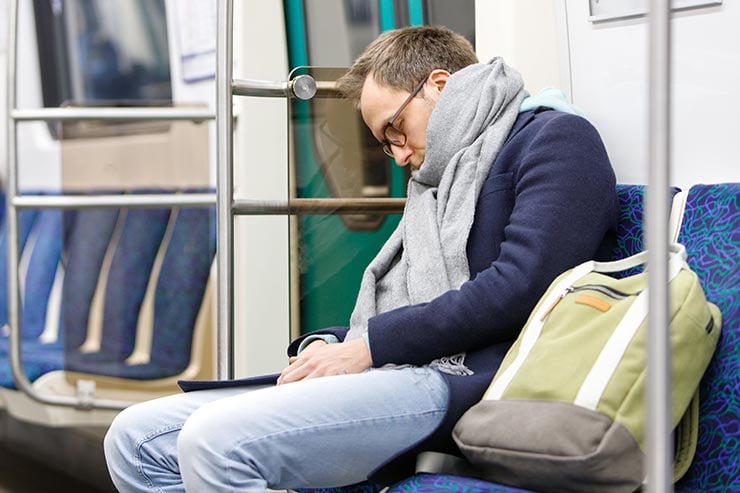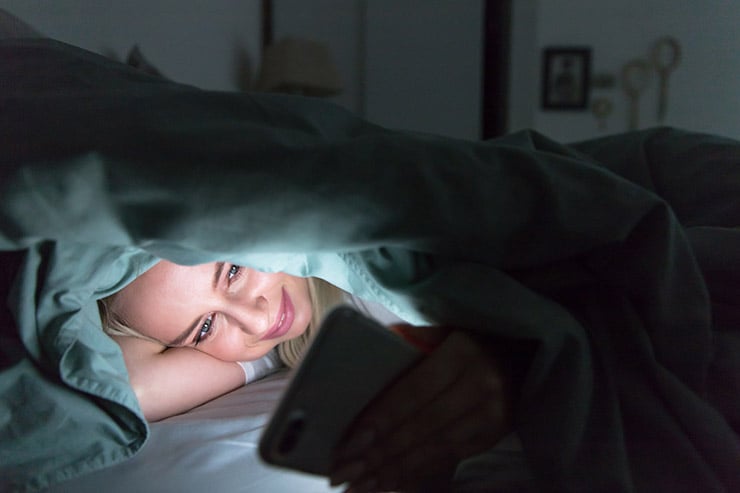
Table of Contents
Are you one of the many suffering from lack of sleep? This is called sleep deprivation. It basically means that you are not getting enough sleep at night, a problem that could have serious consequences to both your physical and mental health, if left untreated.
Key Takeaways
- Sleep deprivation is diagnosed when one consistently gets insufficient sleep duration, impacting physical health.
- Severe sleep deprivation leads to serious health issues like cardiovascular disease and weakened immunity.
- Symptoms of sleep deprivation include fatigue, poor concentration, and mood changes.
- Poor quality sleep and sleep disorders are common causes that affect sleep.
- Improving sleep hygiene and consulting sleep medicine can help prevent sleep deprivation.
- The effects of sleep deprivation can be long-lasting without proper intervention.
Understanding sleep
To understand sleep, we have to know the process behind it. We go to bed at night and fall asleep, where the majority of us will experience REM (Rapid eye movement) sleep, a deep state of sleep providing us with enough quality sleep to make it through the following day. Once we wake up, we feel well-rested and ready to take on the day ahead. A normal adult should get between seven and eight hours of sleep per night to function at peak performance. There are those that are fully capable of functioning just fine on just six hours of sleep per night, while others might require up to ten hours a night.
A person suffering from sleep deprivation is NOT getting enough hours of sleep per night. This is not an issue if it happens every now and then. However, when it starts to become a pattern, where you are not getting the hours of sleep required night after night, then you are having an extremely serious condition called chronic sleep deprivation.
What is Sleep Deprivation?
Not having enough sleep regularly can be defined as sleep deprivation. While this is not a unique problem with specific symptoms, it is a general state of being that can have ramifications on your overall health and well-being.
Essentially, the disorder of sleep deprivation refers to the state caused by not getting enough sleep for many nights in a row, or for many nights, within a set period of time — for example, for a month. By not sleeping enough, you have an increased risk of experiencing medical issues, some of which could be life-threatening.
Why Sleep Deprivation is a Problem

Aside from the apparent physical effects sleep deprivation can have on your body, there are also the psychological effects that come with it. Not only can you get sick, or even die if left untreated, the psychological aspects could not only have detrimental effects on you but also on the people close to you. Suffering from anxiety, stress, lack of energy due to sleep deprivation could trickle down to family members, affecting your relationship with your partner or children.
It could also create rifts at work with your colleagues. And, if it is severe enough, you could also lose your job, and with that your paycheck. With no income, you are now adding additional stress and financial worries on top of the already existing issues, resulting in deeper depression.
All of this could set a motion of a downward spiral that you are unable to stop on your own. This is why it is extremely important that you seek guidance, advice, or help from professionals to get you out of this spiral, as the last thing you want to do is make sleep deprivation worse than it already is.
How Much Sleep Does a Human Need?
By studying different research published around the world, experts have concluded that an adult human should aim for seven to eight hours of sleep per night. Anything less is considered not enough sleep. If you constantly sleep six hours or less per night during a longer period of time, then it is insufficient sleep and you are sleep deprived.
As mentioned, this optimal range is for an adult human. For children or toddlers, those numbers are vastly different, as children require anywhere between 10-13 hours of sleep while infants require even more than that, 14 hours or more.
Side Effects of Sleep Deprivation
Suffering from acute sleep deprivation can manifest itself in a number of ways, depending on the individual in question. Everyone reacts differently and as such, one or a few of these complications below might happen to you if you do not practice healthy sleeping habits.
- Hypertension (High blood pressure)
- Mental health problems
- Adverse effects on the central nervous system
- Impacted immune system
- Disruptions to the central nervous system
- Problems with digestion
- Insomnia symptoms, which could include stress, anxiety, amongst others.
- Cardiovascular disease
- Issues with the heart and blood vessels
- Mental illness
Common Causes Behind Chronic Sleep Deficiency
If you are not getting a good night's sleep, there could be numerous reasons why. It could be situations within your control, but also those you are unable to resolve that cause sleep problem that you are suffering from. Below, we list a few of these causes.
- Having a sleep schedule but not sticking to it
- Poor eating habits
- Neglecting daily water consumption
- Consuming caffeine, alcohol, or food before bedtime
- Loud noises, such as from neighbors, or outside from traffic
- Irregular sleep patterns
- Poor sleeping environment (mattress, pillow, room temperature)
- Allowing electronic devices in the bedroom
- The use of drugs
- Poor sleep hygiene
- Incorrect sleep-wake cycle
- Low quality sleep (waking up and falling asleep repeatedly or poor sleeping habits)

Sleep Disorders That Could Result in Sleep Deprivation
Besides the above-mentioned common causes that could prevent you from getting quality sleep and required hours per night, there are also other sleep disorders that could result in you having trouble sleeping:
- Obstructive sleep apnea
- Restless legs syndrome
- Circadian rhythm disorders
- Insomnia
These are issues that should be diagnosed by a medical professional. To conclude on what you are suffering from, a doctor or sleep specialist may require you to participate in a sleep study. With the results from this study, they can provide a correct diagnosis and provide a treatment plan where most cases might require some medication.
How you can Improve Sleep Quality and Reduce Sleep Deficiency
The root cause behind your lack of sleep might not be a sleep disorder. It could simply be patterns or habits you need to break, in order to achieve deep sleep at night. Some of the methods available for you to try on your own, or with the help of a sleep specialist or an instructor, include relaxation techniques, guided meditation for sleep, such as Yoga Nidra. If this sounds like an option, why not read our benefits of Yoga Nidra article. Another option could be breathing exercises where box breathing is an excellent choice.
Other options that could help you improve your sleep include
- Journaling a sleep diary
- Maintaining a healthy sleep environment
- Avoiding naps during the day
- Avoiding caffeine at least a few hours before bedtime
- Adhering to a strict sleep schedule (going to bed and waking up at the same time day after day)
- Opting for cognitive-behavioral therapy
- Banning all electronic devices from the bedroom
- Limiting alcohol consumption
Conclusion
Getting adequate sleep at night is essential for your health. Suffering from sleep deprivation could, as we have mentioned, be life-threatening. If you believe you fit into this group, take matters into your own hands and act on it as soon as possible. The longer you wait and leave your problems untreated, such as not sleeping enough every night, could push you beyond your breaking point or cause irreversible damage to your mind and body. We stand ready to help you with guided meditation for sleep, breathing exercises for anxiety and stress, exercises such as yoga or Pilates, all with the goal of helping you achieve healthy sleep habits and ensuring sufficient sleep at night. In the end, this will mean a happier life for you and those around you. Do not let sleep deprivation destroy your life, get more sleep today!
References
https://jamanetwork.com/journals/jamainternalmedicine/fullarticle/2110998
https://www.sciencedirect.com/science/article/pii/S0005796717300190
https://link.springer.com/article/10.1007/s41465-018-0068-1#Tab1
https://www.ncbi.nlm.nih.gov/pmc/articles/PMC3328970/
American Academy of Sleep Medicine
Disclaimer
The contents of this article are provided for informational purposes only and are not intended to substitute for professional medical advice, diagnosis, or treatment. It is always recommended to consult with a qualified healthcare provider before making any health-related changes or if you have any questions or concerns about your health. Anahana is not liable for any errors, omissions, or consequences that may occur from using the information provided.

By: Clint Johnson
Clint is the driving force and founder of Anahana. Clint teaches Yoga, Pilates, mindful breathing, and meditation, catering to a global community of students and teachers.